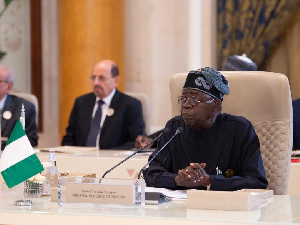Crunch debate
Bernard Otabil looks at the raging debate
Commentators and economists always have something to say about the performance of the country’s economy. They are never tongue-tied in any given situation. Whether interest rates are rising or GDP is falling, the economist always has a story to tell. In some situations, they will normally talk of sequence of events to explain why a particular problem should lead the economy in a certain way. And the key word here is events. But if indeed most commentators had the magic wand to deal with all our problems, or did have the right tools to see what will happen in the future, why is it then that our financial markets are in so much mess? Here, I am referring to the global financial crisis in which we find ourselves today. This, therefore, means that “all things are never equal” as the economist would want you to believe.
It is against this background, and the fact that in economic situations it is not always black or white that I find some of the debates raging in the country about the country’s economy quite intriguing. We all don’t know what will happen in the future! It may sound bizarre but that is the honest truth. What we do know, however, is that planning helps to measure expected outcomes against policy implementation and therefore helps you to steer right on course, along a desired path. But with the financial markets, the sub-prime problems of the past two years have shown all of us that we should never be too sure about our financial analysis. This phenomenon has lent credence to the fact that indeed we should not be too sure about what the future holds when it comes to financial markets. There is always a thing or two to surprise us all.
Some have tried to explain that the global financial problems of the past two years were due to greed. But that is not the complete picture. Markets indeed suffered due to unsuspected collapse of the credit market, especially in the US where bad borrowers were still living lavishly on credit. That was not anticipated, was it? At least that is what the rating agencies want us to believe.
Therefore, our economy may not be doing so well today, but that does not mean that all is lost also. It is worth noting that financial markets around the world started the year in a topsy-turvy way, with leading investment banks experiencing severe financial hardships. This was expected because the last half of 2008 indeed was not the best for markets. Merrill Lynch for example, an investment bank of global repute had to write down US$15bn losses following the sub-prime crisis and the credit crunch problem that came to bear, while French bank SocGen announced a 5.5bn euro fraud after a rogue trader was caught. And since financial markets are somewhere linked, no country is immune from the crisis. These problems have come with devastating effects on the country. It is indeed true that the country enjoyed good GDP growth in 2008, as analysts estimate a growth rate of more than 7 per cent that year, the best in over decade. But the projected growth of a little over 5 per cent this year does not necessarily mean that we are retrogressing. In fact, Ghana’s revised growth rate compares favourably to expected growth rate for Africa as whole this year. (Again sequence of events determining an outcome!)
The Economic Report on Africa 2009 jointly published by the United Nations Economic Commission for Africa (ECA) and the African Union Commission (AUC), and launched on May 28 in Addis Ababa estimates that GDP growth in Africa would decline from 5.1 per cent in 2008 to 2 per cent in 2009.This therefore means that all is not well with our economy, and here the reference is the world economy.
What is however needed is for Ghana’s economic managers to ensure that the right policies are implemented, especially policies that are pro-poor enough so as to ensure that our collective goal of alleviating poverty is indeed achieved.
Bernard Otabil is the editor of Graphic Business, a business newspaper published weekly by Graphic Communications Group. You can get a copy on Tuesday from your local vendor.
Business News of Tuesday, 16 June 2009
Source: The Mirror
















